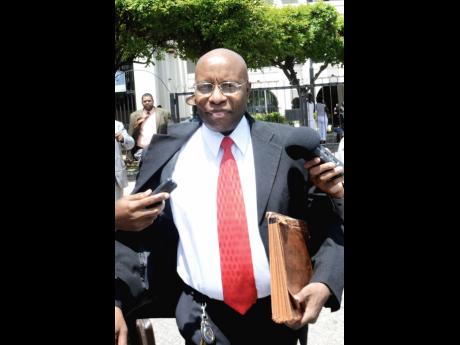No money for Cash Plus investors
Two weeks after former Cash Plus boss Carlos Hill was freed of fraud charges, the state agency handling the liquidation of his failed unregulated investment scheme has signalled that depositors should not expect a full refund any time soon.
The Office of the Government Trustee revealed yesterday that the losses to Cash Plus depositors have been calculated at just over $19 billion, almost doubling the initial reports.
That figure is based on the 35,000 claims the trustee's office says it received from approximately 21,000 depositors for J$17.5 billion, US$23.3 million, £413,500 and CAN$93,000.
However, the office reports that since the start of the liquidation process in July 2008, it has collected a total of J$827.5 million and US$1.16 million, mainly through debt collection as well as the sale and rental of properties owned by the Cash Plus entities.
According to the government trustee, this amount was not only "insufficient to make a dividend payment of any significant portion" to depositors, but, for several reasons, it could not be immediately used to pay creditors.
"These include the continuation of investigations to identify and recover Cash Plus assets within and outside the jurisdiction, the inability of the Trustee to quickly dispose of assets given the need to resolve legal and other issues, and the need to individually review and verify claims and identify and remove duplications," the agency explained.
The Office of the Government Trustee said that it also need to determine the amount of funds available to pay dividends and make priority payments such as wages, redundancy payments, taxes and contribution to the National Insurance Scheme and the National Housing Trust for former Cash Plus employees.
It has been a long wait and several unfulfilled promises for Cash Plus depositors since the entity ceased operations in 2008.
Hill was arrested and charged with attempting to and fraudulently inducing persons to invest in his investment scheme which promised significant returns on deposits over a short period. On May 24, a seven-member jury found him not guilty of all charges after prosecutors announced that they were offering no evidence against him.






































